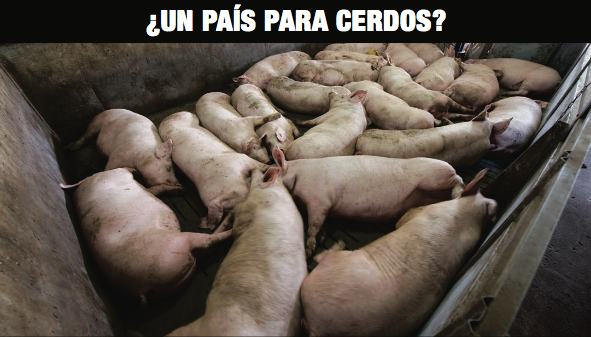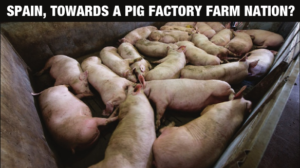Brussels and Washington, D.C.— A new report (.pdf) published today by Food & Water Europe exposes the enormous influence that corporate drug companies play in the peer-reviewed science surrounding risky veterinary drugs widely used in the United States but forbidden in the EU. The U.S. approach of allowing the marketplace to determine the safety of risky veterinary drugs rather than independent science—as was the case with the beef cattle growth-promoter Zilmax, which was removed from the U.S. market in 2013—makes any move toward regulatory “harmony” via an EU-U.S. trade agreement a serious threat to safety of the EU food system.
Food & Water Europe EU Food Policy Analyst Eve Mitchell said, “It’s clear that some favourable safety findings on the drugs widely used to produce food are effectively bought and paid for by the companies that stand to profit. The cornerstones of the scientific method, like independent replication of findings, simply aren’t being honoured, and many U.S. farmers are giving their animals questionable drugs every day because of it. This is not the kind of food production we want or need, yet a trans-Atlantic trade deal will reinforce these safety problems for everyone.”
The Trans-Atlantic Trade and Investment Partnership (TTIP) is a vast trade deal under negotiation between the U.S. and EU. Highly controversial topics like genetically modified (GM) food and hormone treatments in meat animals have all but stalled progress of TTIP, which was supposed to conclude negotiations later this year. “Governments on both sides insist neither regulatory system will be eroded by TTIP and that food safety will continue to be guaranteed, but today’s report shows safety isn’t even clear now,” says Mitchell.
A major problem is with the scientific journals that publish the studies. Industry groups play an enormous role in the production of scientific literature, authoring journal articles, funding academic research and also serving as editors, sponsors or directors of the same scientific journals where much of their research is published.
Mitchell said, “It’s not just a matter of EU and U.S. regulators agreeing that their counterparts consulted the science and concluded drugs are safe when that science is comprised. Now, consumers on both sides of the Atlantic are being asked to place our faith in “harmonised’ approval systems.”
“This report documents the problems in animal science research, but the same weak disclosure rules, industry influence and lack of independent research appears to pervade much of agricultural research, from GMOs to cloning to herbicides. It’s huge.”
Mitchell added, “There’s a lot of talk about ‘free trade” out there, especially when in comes to TTIP, but it’s full of holes. To function properly, genuinely free markets rely on complete information available to all, and this report shows how deep the disclosure problem goes. The EU is not immune to these problems.”
Food & Water Europe calls on scientific journals to disclose the funding sources for papers they publish and says the European Food Safety Authority (EFSA) also needs to do more to ensure the research it uses to determine the safety of products in the food chain has been thoroughly and independently assessed.
Mitchell concluded, “The merits of EFSA’s ongoing project on openness and transparency will be called into question unless it does more to ensure it is not relying on for-profit science. EFSA should publish the authorship affiliations and funding sources of the science it consults. Some large portion of the science EFSA consults is likely to have been biased by industry authorship and funding, but the public can’t see where this happens. This has to change.”
Read For Profit Animal Science Undermines Safe Food Trade: http://www.foodandwatereurope.org/reports/corporate-control-in-animal-science-research/.
Contact: Eve Mitchell, Food & Water Europe (UK time), +44(0)1381 610 740, [email protected]




